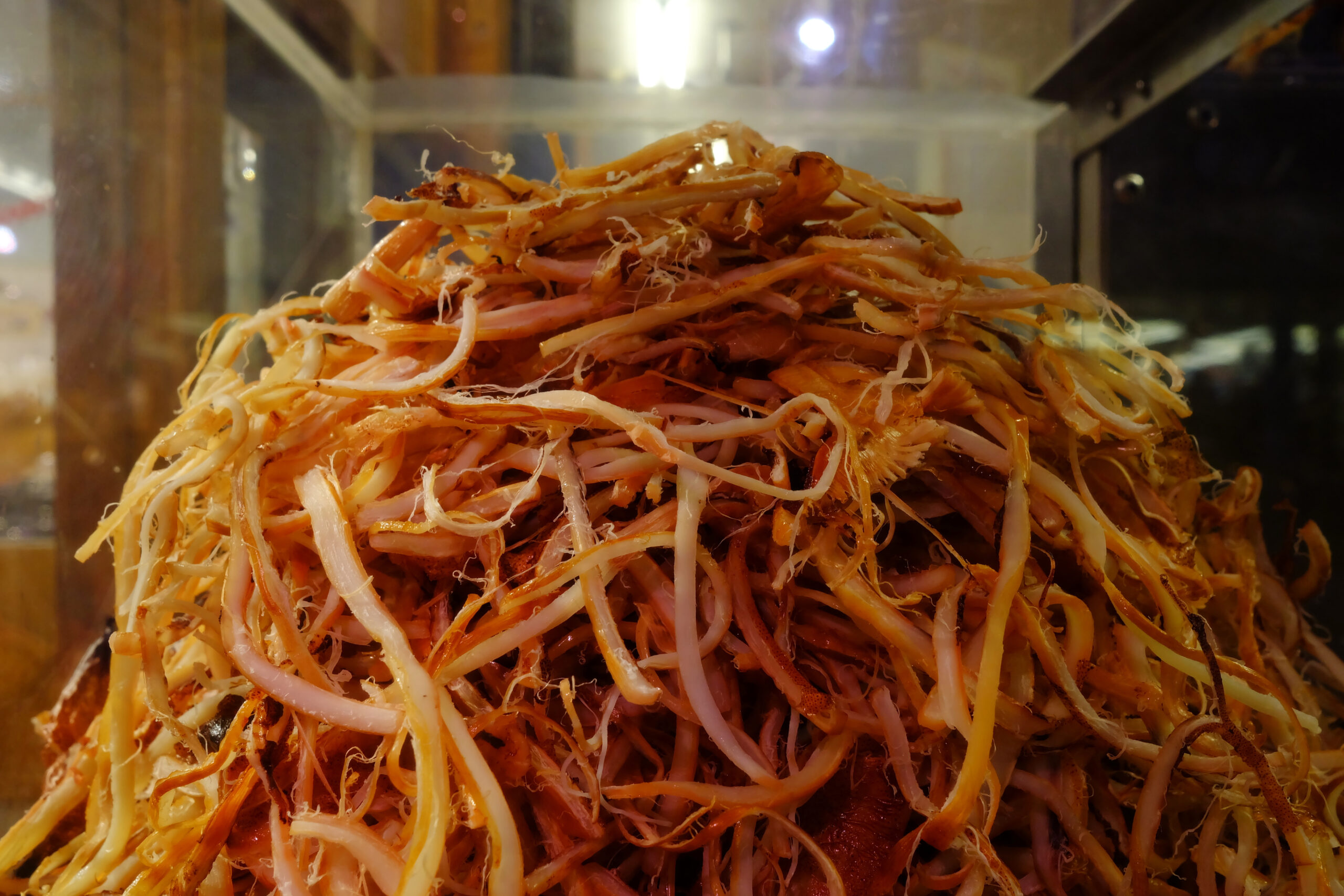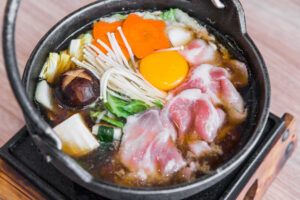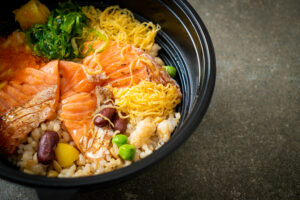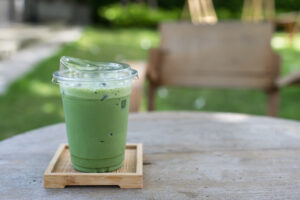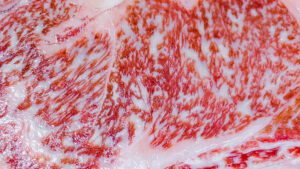===
In recent years, dried squid strips have taken the global snack market by storm, with Ikataro emerging as a standout brand. Known for its unique flavor and texture, Ikataro has attracted a diverse audience, from health-conscious individuals to culinary adventurers. This article explores the multifaceted appeal of dried squid strips, particularly Ikataro, examining its popularity, nutritional value, cultural significance, and the production processes that contribute to its unique profile.
The Rise of Dried Squid Strips in Global Snack Culture
The global snack culture has undergone significant transformation, marked by a rising interest in unconventional snack options. Among these, dried squid strips have gained traction for their unique taste and texture. Traditionally a staple in Asian markets, they now enjoy worldwide recognition, driven by an increasing number of consumers seeking healthier snack alternatives. The shift towards protein-rich foods has favored dried seafood products, positioning them as a viable competitor against conventional snacks like chips and pretzels.
Market trends indicate that consumers are gravitating towards snacks that offer both flavor and health benefits. Dried squid strips, particularly Ikataro, have met this demand, providing a low-fat, high-protein option that satisfies cravings without the guilt. The rising trend of snacking on-the-go has also contributed to the popularity of dried squid, as its portability and shelf stability make it an attractive choice for busy lifestyles.
As global culinary preferences become more eclectic, traditional snacks are finding their way into diverse markets. Dried squid strips have benefitted from this trend, with an increase in visibility in grocery stores and specialty shops worldwide. The rise of Asian cuisine has played a significant role in expanding the consumer base for these snacks, as more people become familiar with their flavors and culinary applications.
Social media has played a crucial role in amplifying the popularity of dried squid strips. Platforms like Instagram and TikTok have seen a surge in content featuring these snacks, showcasing their versatility and appeal. Influencers and food bloggers have contributed to the hype, creating aesthetically pleasing posts and videos that highlight the unique aspects of Ikataro.
The emergence of fusion cuisine has also contributed to the dried squid trend, as culinary creatives experiment with incorporating these flavor-packed strips into various dishes. From gourmet salads to stylish charcuterie boards, dried squid strips are becoming a celebrated ingredient in modern gastronomy.
In essence, the rise of dried squid strips in global snack culture is a testament to changing consumer preferences, driven by health consciousness and a desire for novel culinary experiences. As brands like Ikataro continue to innovate and adapt, they are well-positioned to capitalize on this growing trend.
What Makes Ikataro Stand Out Among Snack Options?
Ikataro is not just another dried squid snack; it represents a carefully curated blend of tradition and modernity. What sets it apart from other snacks is its commitment to quality and flavor, ensuring that each bite delivers a satisfying experience. The brand emphasizes premium sourcing of squid, often opting for species that are renowned for their superior taste and texture. This level of attention to sourcing contributes to the distinct quality that consumers have come to associate with Ikataro.
The unique flavor profile of Ikataro is also a significant differentiating factor. While many dried squid products rely heavily on salt or artificial flavors, Ikataro takes a more nuanced approach. The squid is marinated in a proprietary blend of seasonings, allowing for a rich umami flavor that resonates with consumers. This thoughtful preparation process elevates the snack beyond the typical dried seafood offerings, appealing to gourmet sensibilities.
Furthermore, Ikataro’s branding and packaging play a key role in its market positioning. The eye-catching designs and transparent packaging allow consumers to appreciate the product’s quality at a glance. This transparency fosters trust, especially among health-conscious shoppers who seek clarity regarding the ingredients in their food. The brand’s commitment to quality extends to its marketing strategies, which effectively communicate its values to consumers.
Ikataro has also made a concerted effort to engage with its audience. Through interactive social media campaigns and collaborations with food influencers, the brand has successfully built a community of enthusiasts. This engagement not only increases brand loyalty but also creates a platform for consumer feedback, allowing Ikataro to adapt to evolving tastes and preferences.
The versatility of Ikataro is another aspect that sets it apart. While many snacks are limited to specific consumption occasions, dried squid strips can be enjoyed in various contexts—from casual snacking to gourmet pairing with beverages. This adaptability has made Ikataro a favorite among a broad range of consumers, from traditionalists to modern foodies.
In summary, Ikataro’s unique qualities—from its premium sourcing and innovative flavor profiles to its engaging branding—position it as a standout option in the diverse landscape of snack foods. As consumer preferences continue to evolve, Ikataro’s commitment to quality ensures that it remains a top choice in the increasingly crowded snack market.
A Deep Dive into the History of Dried Squid Treats
The history of dried squid treats traces back to ancient maritime cultures, where preservation techniques were essential for food sustainability. Communities living along coastlines soon discovered that drying squid extended its shelf life, making it an ideal food source during long sea voyages. This method of preservation has roots in various cultures, from Japan to the Mediterranean, and has evolved over centuries.
In Asia, dried squid has been a cherished delicacy for generations. Its unique texture and flavor have made it a popular choice in various culinary traditions. The process of drying squid involves removing moisture to prevent spoilage, a practice that not only enhances flavor but also creates a distinctive chewiness. Over time, different regions have developed their variations of dried squid, resulting in an array of flavors and preparation methods.
Japan, in particular, has played a significant role in popularizing dried squid snacks. The country has a long-standing history of incorporating seafood into its cuisine, and dried squid has become a staple in izakayas (Japanese pubs) and convenience stores. The traditional Japanese snack, known as "squide jerky," laid the foundation for modern dried squid products, including popular brands like Ikataro.
The globalization of culinary practices has led to the introduction of dried squid to Western markets. As Asian cuisine gained popularity, so did its snacks. Dried squid strips began to capture the attention of adventurous eaters looking to explore new flavors, eventually leading to their acceptance as a mainstream snack option.
In the 21st century, the trend towards healthier snacking has further propelled dried squid’s popularity. As consumers increasingly seek protein-rich, low-calorie options, dried squid snacks have become a go-to choice for those looking to satisfy cravings while maintaining a balanced diet.
Today, dried squid treats like Ikataro are celebrated not only for their taste but also for their cultural heritage. As they continue to gain traction in the global snack market, the rich history behind these treats serves as a reminder of the diverse culinary practices that have shaped modern eating habits.
The Nutritional Value of Ikataro: A Healthy Choice?
In an era where health-conscious eating is more important than ever, Ikataro has positioned itself as a nutritious snack option. Dried squid strips are inherently low in calories while being rich in protein, making them an appealing choice for those looking to manage their weight without sacrificing flavor. A typical serving of Ikataro offers a substantial protein boost, which can help keep hunger at bay and maintain energy levels throughout the day.
Moreover, dried squid is a good source of essential nutrients such as omega-3 fatty acids, vitamins, and minerals. These nutrients play critical roles in supporting cardiovascular health, cognitive function, and overall well-being. For consumers seeking nutrient-dense snacks, Ikataro stands out as a viable option that delivers more than just taste.
Another advantage of Ikataro is its low carbohydrate content. Unlike traditional snack foods that are often high in refined sugars and empty calories, dried squid strips provide a more balanced snacking experience. This makes Ikataro particularly appealing to those following low-carb or ketogenic diets, as it allows for indulgence without compromising dietary goals.
One possible concern with dried squid snacks is their sodium content. Many brands, including Ikataro, have recognized this issue and made efforts to reduce salt levels while maintaining flavor. As health awareness continues to rise, consumers are increasingly seeking snacks that align with their dietary preferences, and brands that adapt to these needs are likely to thrive.
In addition to being a healthy snack, Ikataro’s convenience factor cannot be overlooked. Its portable packaging makes it easy to enjoy at home, at work, or on the go, catering to the busy lifestyles of modern consumers. This convenience, combined with its nutritional benefits, makes Ikataro an everyday snack choice for many.
Ultimately, the nutritional value of Ikataro aligns well with the growing trend of mindful eating, allowing consumers to indulge without guilt. As the demand for healthier snack options continues to rise, Ikataro is poised to remain a favorite among health-conscious individuals.
How Dried Squid Strips Became a Trendy Snack
The journey of dried squid strips from a traditional delicacy to a trendy snack phenomenon is a fascinating narrative. As globalization opened up culinary borders, many consumers began exploring Asian cuisine beyond mainstream offerings like sushi and dim sum. Dried squid strips, particularly products like Ikataro, gained attention as adventurous eaters sought new flavors and textures.
The rise of health consciousness played a significant role in propelling dried squid into the spotlight. As consumers became increasingly aware of the ingredients in their snacks, the demand for protein-rich, low-calorie options surged. Dried squid strips emerged as a solution, providing a savory alternative to traditional snack foods laden with unhealthy fats and sugars.
Social media’s role in shaping culinary trends cannot be underestimated. Platforms like Instagram and TikTok have turned food into a visual spectacle, allowing users to document their snack experiences. Dried squid strips became popular content, thanks to their eye-catching presentation and the ability to showcase unique flavors. Influencers began promoting Ikataro and similar products, driving consumer curiosity and engagement.
The concept of "snackable" has also evolved significantly, with consumers seeking foods that can be enjoyed anytime, anywhere. Dried squid strips fit perfectly into this trend, with their lightweight, portable packaging making them ideal for on-the-go snacking. This convenience factor has made them particularly attractive to millennials and younger consumers who prioritize quick, healthy options.
Moreover, the cultural significance of dried squid in Asian cuisine has contributed to its appeal. As culinary cross-pollination continues to occur, consumers are eager to experience authentic ingredients and flavors. Dried squid strips are no longer seen as niche products but have become a part of mainstream snack culture, bridging cultural gaps through food.
In conclusion, the transformation of dried squid strips into trendy snacks can be attributed to a combination of health consciousness, social media influence, and evolving consumer preferences. As brands like Ikataro continue to innovate and reach new audiences, the future of dried squid snacks looks bright.
The Flavor Profile: What to Expect from Ikataro
The flavor profile of Ikataro is one of the key elements that sets it apart from other snack options. Upon first taste, consumers are greeted with a robust umami flavor that is both savory and satisfying. This complexity comes from the proprietary marinades and seasonings that Ikataro employs, which enhance the natural briny taste of the squid while avoiding overpowering saltiness.
The texture of Ikataro is another defining characteristic that complements its flavor. The strips are meticulously dried to achieve a perfect balance between chewiness and crispness, offering a delightful mouthfeel. This unique texture allows the flavors to unfold gradually, making each bite an enjoyable experience.
Ikataro also embraces the art of seasoning, incorporating a blend of spices that elevate the overall taste without overshadowing the squid’s inherent flavors. This thoughtful approach ensures that the snack appeals to a wide range of palates, from those who prefer bold flavors to those who appreciate subtler profiles. The balance achieved in Ikataro’s seasoning sets it apart in a crowded snack market.
Another element that contributes to its appeal is the hint of smokiness that some variants of Ikataro offer. This subtle smokiness adds an extra layer of depth, making it an enticing option for consumers looking for something uniquely flavorful. Whether enjoyed on its own or paired with beverages, Ikataro’s flavor profile encourages exploration and experimentation.
The versatility of Ikataro’s flavor also lends itself to various culinary applications. Beyond being a stand-alone snack, many consumers use Ikataro as a garnish for salads, rice bowls, and even as an ingredient in gourmet dishes. This adaptability makes it a favorite among home cooks and chefs alike, further entrenching its status as a trendy snack.
Ultimately, the flavor profile of Ikataro is a harmonious blend of umami, texture, and seasoning that appeals to a diverse range of consumers. Its ability to cater to varying tastes while remaining true to its roots as a dried squid snack has solidified its place in the modern snack landscape.
Exploring the Production Process Behind Ikataro
The production process behind Ikataro is a meticulous one, rooted in tradition yet enhanced by modern techniques. The journey begins with the careful selection of high-quality squid, which is crucial for ensuring the final product’s taste and texture. Sourcing the right species of squid, often known for their flavor profile, is a vital step in creating Ikataro’s signature product.
Once the squid is sourced, the initial preparation involves cleaning and filleting, which must be done with precision to maintain the integrity of the meat. This step is followed by marinating, where Ikataro employs a proprietary blend of seasonings. This marinade not only infuses the squid with flavor but also plays a role in enhancing the natural umami characteristics of the seafood.
After marination, the squid undergoes a drying process, which is essential for preserving the product while concentrating its flavors. Ikataro uses controlled drying techniques that balance temperature and humidity, ensuring that the squid retains its moisture while achieving the desired texture. This careful drying process is what sets Ikataro apart from mass-produced alternatives, as it allows for a more nuanced flavor development.
Quality control is a crucial aspect of Ikataro’s production process. Each batch is subjected to rigorous testing to ensure consistency in flavor, texture, and overall quality. This commitment to quality assurance is what has garnered Ikataro a loyal following among consumers who value authenticity and craftsmanship in their snacks.
The packaging process is equally important, as it must protect the delicate nature of the dried squid while appealing to consumers. Ikataro utilizes eye-catching designs that highlight the product’s quality, along with transparent elements that allow consumers to see what they are purchasing. This transparency builds trust and communicates Ikataro’s commitment to quality.
In summary, the production process behind Ikataro is a blend of traditional practices and modern innovations. From sourcing high-quality squid to employing meticulous drying techniques, every step is designed to create a product that stands out in the crowded snack market. This dedication to craftsmanship and quality is what makes Ikataro a beloved choice among consumers.
Cultural Significance of Dried Squid in Asian Cuisine
Dried squid holds a prominent place in Asian culinary traditions, with its roots deeply embedded in the cultures of various coastal communities. Its significance ranges from being a widely enjoyed snack to a beloved ingredient in numerous dishes. This cultural reverence for dried squid is a testament to the resourcefulness of these communities, who have long relied on seafood for nourishment and sustenance.
In countries like Japan, Korea, and China, dried squid is not only a culinary staple but also a cherished comfort food. It is often enjoyed during gatherings, festivals, and casual get-togethers as a flavorful snack that fosters social connections. The act of sharing dried squid among friends and family highlights its role in bringing people together through food.
The preparation of dried squid varies across regions, reflecting local flavors and preferences. For instance, in Japan, dried squid is often seasoned with soy sauce or mirin, while in Korea, it may be marinated with spicy gochujang. These regional adaptations showcase the versatility of dried squid and its ability to absorb and complement various flavors.
Dried squid also plays a role in many traditional dishes, where it serves as a key ingredient in soups, stews, and stir-fries. Its umami flavor enhances the overall taste of these dishes, contributing depth and richness. This culinary integration has solidified dried squid’s status as an essential component of Asian gastronomy.
Moreover, the cultural significance of dried squid extends beyond mere consumption; it is often associated with traditions and rituals. For example, in some coastal communities, drying squid is a time-honored practice passed down through generations, embodying the connection between people and their maritime heritage. This cultural legacy adds value to dried squid, making it more than just a snack but a symbol of community and history.
As global interest in Asian cuisine continues to grow, the cultural importance of dried squid is being recognized and celebrated worldwide. Products like Ikataro not only bridge cultural gaps but also highlight the richness of Asian culinary traditions, inviting consumers to experience the flavors and stories behind this beloved snack.
Consumer Preferences: Why People Love Ikataro
Consumer preferences play a pivotal role in the success of any product, and Ikataro is no exception. Several factors contribute to the enduring appeal of Ikataro dried squid strips, including flavor, texture, and the brand’s commitment to quality. Consumers are increasingly drawn to products that deliver on taste while aligning with their health and lifestyle choices.
One of the primary reasons people love Ikataro is the unique flavor profile that balances savory and umami notes. The careful preparation and seasoning of the squid strips create a satisfying snacking experience that appeals to diverse palates. Consumers often describe the taste as addictive, leading them to seek out Ikataro for their snack cravings.
Texture is another crucial element that contributes to Ikataro’s popularity. The chewiness of the dried squid strips offers a satisfying mouthfeel, making the act of snacking more enjoyable. This tactile experience stands in stark contrast to many conventional snacks, which can be overly crunchy or bland. Ikataro’s distinct texture invites consumers to savor each bite, enhancing their overall enjoyment.
Health-conscious consumers are also drawn to Ikataro for its nutritional value. As the demand for protein-rich, low-calorie snacks continues to rise, Ikataro’s profile fits the bill perfectly. Many consumers appreciate the balance of indulgence and healthiness that Ikataro offers, allowing them to satisfy their cravings without compromising their dietary goals.
Moreover, the brand’s commitment to quality and transparency resonates with today’s consumers. Ikataro’s emphasis on sourcing high-quality squid and maintaining strict quality control fosters trust among consumers who are increasingly discerning about the products they choose. This level of accountability aligns with the growing trend of mindful eating, where consumers seek out brands that share their values.
Lastly, the convenience and versatility of Ikataro contribute to its widespread appeal. The portable packaging allows consumers to enjoy the snack at work, on the go, or at home, making it a convenient option for busy lifestyles. Additionally, its adaptability in culinary applications means that consumers can experiment with incorporating Ikataro into various dishes, further enhancing its desirability.
In summary, consumer preferences for Ikataro can be attributed to its unique flavor profile, satisfying texture, nutritional benefits, and the brand’s commitment to quality and convenience. As long as these elements continue to resonate with consumers, Ikataro is likely to maintain its position as a beloved snack choice.
The Role of Social Media in Ikataro’s Popularity
The rise of social media has dramatically reshaped how brands engage with consumers, and Ikataro has effectively leveraged this trend to enhance its popularity. Platforms like Instagram, TikTok, and Facebook have provided a dynamic space for sharing food experiences, and Ikataro has adeptly utilized these channels to reach a broader audience. The visual and interactive nature of social media allows consumers to showcase their enjoyment of the product, thereby creating organic buzz around the brand.
Social media influencers have played a significant role in promoting
